Organismal Evolution and Cancer Defenses
Investigators
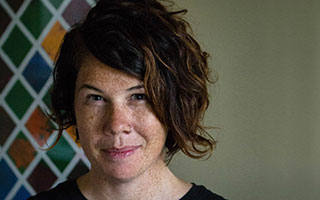
Amy Boddy
Assistant Professor, University of California, Santa Barbara
Dr. Boddy is an Assistant Professor in Integrative Anthropological Sciences at the University of California, Santa Barbara (UCSB). Her work uses applications from evolution and ecology to understand human health and disease. Dr. Boddy uses a combination of genomics, computational biology and evolutionary theory to help understand trade-offs between survival and reproduction across different levels of biological organization. Her current research program studies organismal level trade-offs between cancer defenses and reproduction, as well as the cellular life history dynamics of a neoplasm. In 2015, Dr. Boddy and colleagues proposed an evolutionary framework for the biological phenomenon, fetal microchimerism, in the context of maternal health and disease. Prior to her work at UCSB, she earned her B.S. in Biology from Wayne State University (WSU) in 2006. In 2013, Dr. Boddy received her PhD in Molecular Biology and Genetics from WSU School of Medicine with a focus on molecular evolution and comparative genomics. Dr. Boddy did her postdoctoral training from 2013-2016 at University of California, San Francisco and Arizona State University, where she began to apply evolutionary theory to cancer biology. From 2016-2017, she was an Assistant Research Professor in the Biodesign Institute at Arizona State University.
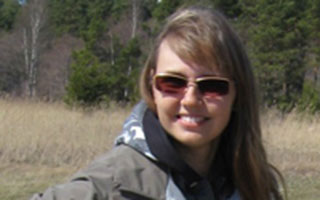
Hanna Kokko
Professor, University of Zurich
Hanna Kokko is an evolutionary ecologist and mathematical modeller, who completed her PhD on sexual selection at the University of Helsinki in 1997. She has worked at Universities of Cambridge, Glasgow, Jyväskylä, and the Australian National University, before her current position as a professor of evolutionary ecology at the University of Zurich (since 2014). Her stay at the Wissenschaftskolleg zu Berlin in 2014 sparked her interest in cancer as a life history problem. She currently runs a research group that focuses on life history questions – such as scheduling of reproduction, reproductive modes (e.g. sex or asex? with or without a male-female dimorphism?), ageing, and dispersal – with the aim of theory building being informed by all life, rather than constrained by the necessarily narrow view offered by a few model species.
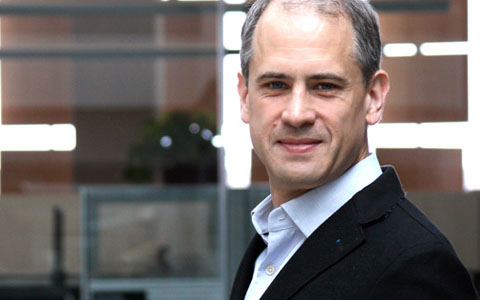
Carlo Maley Co-PI
Associate Professor, Arizona State University
Prof. Maley received his Ph.D. from MIT in computer science (computational biology) in 1998 working with Rodney Brooks and Michael Donoghue (at Harvard at the time), his M.Sc. Zoology (evolutionary theory) from University of Oxford in 1993 working with W.D. Hamilton, and his B.A. in computer science and psychology from Oberlin College in 1991. He completed postdoctoral fellowships at the University of New Mexico (1998-2000) working with Stephanie Forrest, and the Fred Hutchinson Cancer Research Center (2000-2005) where he was a staff scientist working with Brian Reid. He went on to hold faculty positions at the Wistar Institute (2005-2010) and the University of California San Francisco (2010-2015) before joining Arizona State University in 2015.
Prof. Maley is a cancer biologist, evolutionary biologist and computational biologist, working at the intersection of those fields. His team applies evolutionary and ecological theory to three problems in cancer: (1) Neoplastic progression: The evolutionary dynamics among cells of a tumor that drive progression from normal tissue to malignant cancers, (2) Acquired therapeutic resistance: the evolutionary dynamics by which our therapies select for resistance and how we may be able to prevent or control resistant cancer cells, and (3) the evolution of cancer suppression mechanisms in large, long-lived animals like elephants and whales (a problem called Peto’s Paradox). They use genomic data mining, phylogenetics, computational modeling, as well as wet lab techniques to solve these problems. In all of this work, their goals are to develop better methods to prevent cancer and improve cancer management. http://maleylab.com

Athena Aktipis
Assistant Professor, Arizona State University
Athena Aktipis is an Assistant Professor in the Psychology Department at Arizona State University, co-Director of the Human Generosity Project and Director of Human and Social Evolution and co-founder of the Center for Evolution and Cancer at the University of California, San Francisco. Dr. Aktipis completed her BA at Reed College (Psychology), her PhD at University of Pennsylvania (Psychology) and post-doctoral work at University of Arizona (Ecology and Evolutionary Biology). She is a cooperation theorist, theoretical evolutionary biologist, and cancer biologist who now works at the intersection of these fields. Dr. Aktipis is the author of the forthcoming book from Princeton University Press “Evolution in the flesh: Cancer and the transformation of life.”
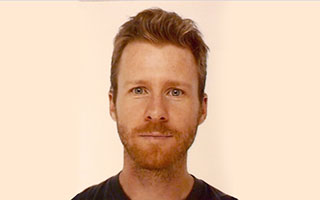
Robert Noble
Lecturer/Senior Lecturer, School of Mathematics, City, University of London
Dr. Noble earned an MMath from the University of York in 2003 and a DPhil in Zoology from the University of Oxford in 2013, with a doctoral thesis on antigenic variation and its evolution in P. falciparum malaria. He spent three years investigating the evolution and ecology of cancer at the Institut des Sciences de l’Evolution de Montpellier before moving to ETH Zurich in 2017 as a post-doc. Since 2020, he has been a lecturer in mathematics at City, University of London. Dr. Noble is a theoretician who collaborates with experimentalists, computational biologists and clinicians. He is particularly interested in the evolution and ecology of cancer risk; how spatial structure influences the mode and predictability of tumour evolution; evolutionary approaches to suppressing drug resistance; subclonal evolution of blood disorders; and ecological interactions between cells. His methods include agent-based models, analysis of dynamic systems, matrix population models, and Bayesian data analysis.
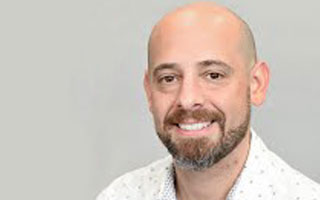
Marc Tollis
Assistant Professor, Northern Arizona University
Dr. Tollis earned a B.S. in Music from New York University in 2002, and a Ph.D. in Biology from the City University of New York in 2013. He uses molecular and computational methods to understand the history of life and genomic mechanisms of evolution across vertebrates. Dr. Tollis has led the sequencing, assembly and annotation, and comparative genomic analyses for multiple reptile genome efforts, including three new anole lizard genomes to study the genomics of adaptive radiation, and the genome of the threatened Mojave desert tortoise (Gopherus agassizii). Through collaborations on other consortium projects including the living fossil tuatara (Sphenodon punctatus), Dr. Tollis is a major contributor to the growing field of reptilian comparative genomics.
Currently, Dr. Tollis is a leader in the effort to study the evolution of large body size and longevity across mammals and how it relates to cancer suppression. The humpback whale (Megaptera novaeangliae) genome project is part of this extremely interdisciplinary and collaborative effort and includes work with Universities of Groningen, Leeds, Zurich, Utah, Southern California, Stanford University, and the Institute of Cancer Research. The group is leveraging the tree of life to develop novel theoretical approaches and evolutionary models that can better predict cancer.
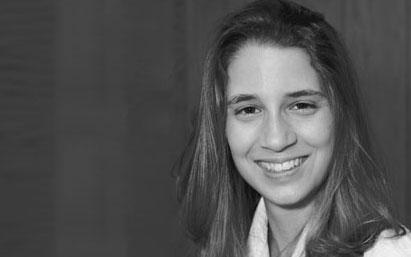
Ashley Zehnder
Co-Founder, Fauna Bio
Ashley Zehnder graduated from the University of Florida College of Veterinary Medicine in 2005, completed a small animal medicine and surgery internship at the Animal Medical Center in New York City in 2006 and a 3-year residency in Companion Avian and Pet Exotic Medicine at the University of California-Davis, becoming boarded in Avian Medicine in 2009. She completed her Cancer Biology PhD in the Khavari Lab at Stanford in 2016, working on novel therapeutic strategies to target altered signaling pathways in epithelial cancers. Since beginning her research training at Stanford, she has pursued interests in cancer biology as well as comparative medicine by maintaining active research interests in both fields. She spearheaded the Zoobiquity Research Symposia in 2014, 2016 and 2018 which brought together veterinarians and human medical researchers to discuss research efforts in infectious diseases, cancer as well as novel animal models of disease. More recently, she co-founded a research alliance to bring together medical professionals to pursue research interests relating to cancer in non-domestic species, shedding light on the biology of tumors in these potentially valuable animal models (www.escra.org). Her post-doctoral research focused on building resources and methods to improve sharing of animal clinical data across the US as well as developing a tumor database focused on non-domestic species, thereby helping to identify potential novel models of cancer for human and animal research. Currently she is the co-founder of Fauna Bio, a drug discovery company built on comparative mammalian genomics that was launched from her post-doc lab at Stanford.
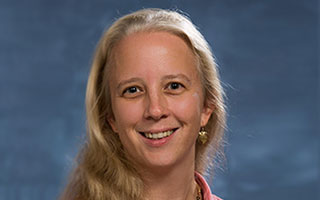
Tara Harrison
Assistant Professor, North Carolina State University
Dr. Tara Harrison graduated from Michigan State University’s College of Veterinary Medicine with her DVM degree. Afterward, she earned a Masters of Preventive Veterinary Medicine degree at the University of California-Davis, where she worked with Dr. Linda Munson as a post-doctoral fellow in the contraceptive advisory group. She did veterinary internships at Toledo Zoo and Wildlife Safari. She then spent ten years working as a veterinarian and curator at Potter Park Zoo and an additional year as the Director of Animal Health at Potter Park Zoo. Dr. Harrison was also an Assistant Professor at Michigan State University during that time. She then went back to UC Davis and was an Assistant Professor in UC Davis’ Department of Medicine and Epidemiology and a veterinarian at the Sacramento Zoo. She is currently an Assistant Professor at North Carolina State University’s College of Veterinary Medicine Exotic Animal Medicine Service. She is board certified in the American College of Zoological Medicine, the American College of Veterinary Preventive Medicine, and the European College of Veterinary Medicine (Zoological Health Management). Dr. Harrison’s research focus is on evaluating the prevalence of cancer, risk factors, treatments and survival of zoological species with cancer.
Collaborator

Christopher Plaisier
Assistant Professor, School of Biological and Health Systems Engineering
Dr. Plaisier uses omics-level snapshots of complex biological systems to inform computational models that: explore the state space of biological systems; discover mechanistic interactions driving the changes in biological states (e.g. health and disease); and predict interventions that push the system from disease states towards healthy states. We focus on developing and applying synergistic experimental and computational approaches that build predictive models derived from single cells, whole heterogeneous tissues, and patient clinical data. These predictive models are then used to gain insights into the underlying biology and identify the best possible interventions to achieve the desired biological state.
His most recent work developed the SYstems Genetics Network AnaLysis (SYGNAL) pipeline which was used to integrate the mutli-omic profiling from The Cancer Genome Atlas (TCGA) into causal and mechanistic gene regulatory networks for glioblastoma multiforme (Plaisier et al., Cell Systems 2016). Subsequent work replicated this approach across all 33 tumor types in the TCGA to construct a SYGNAL PanCancer network that was used to discover regulation of immune modulators and process across tumors (Thorsson, et al. Immunity 2018).
Website: Plaisier Lab
Organismal Evolution and Cancer Defenses
Cancer has been an important selective pressure for organisms and a great deal of variation in cancer rates exist across species.